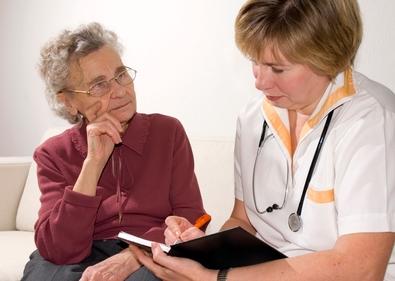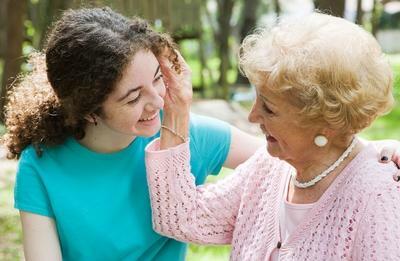
Dr. Brenda Nicholson carefully and compassionately shared the diagnosis of Cancer with her patients in her role as a Vanderbilt University oncologist who helped research the breast cancer BRCA genes. However according to a 2015 study, less than half of those who have Alzheimer’s disease – or their caregivers – are told about their diagnosis.
“Alzheimer’s is similar today to cancer in the 1970s,” Dr. Nicholson explains. “Fear of causing patients emotional distress or depression is the most common reason doctors cited for non-disclosure. However, many patients actually express relief when they get diagnosis. It validates them and helps them understand the cognitive changes they’ve been experiencing.”
Dr. Nicholson, who is an Alzheimer’s Tennessee advocate and has presented to other physicians and healthcare professionals at the non-profit’s annual Research and Management Symposium, speaks from personal experience: She has Alzheimer’s disease.
“By enjoying my life and not taking myself too seriously, friends and family, including my college-aged kids have become very comfortable with the diagnosis and the symptoms I experience,” Dr. Nicholson shared.
It hasn’t been easy, especially in the beginning. “Upon hearing the news, I had Alzheimer’s disease, my parents were devastated, a few friends dropped out of my life, and some treated me like I was suddenly incompetent,” she explained.
Still, as a doctor, she insists that knowing the diagnosis – in the earliest stages possible – is imperative:
- Patients are able to seek opinions from specialists to confirm the diagnosis and identify reversible causes that may mimic Alzheimer’s
- Patients are able to give consent and help families make financial, legal and care decisions, which results in better care
- Delay in diagnosis can cause a person to lose disability insurance often provided by employers
- Acknowledging the diagnosis allows families and individuals to connect with resources through Alzheimer’s Tennessee and adopt positive coping strategies
- Feeling safe and well-cared for reduces stress that can lead patients to feel anxious, overwhelmed and depressed
“Rather than taking away hope, patients gain control and develop an action plan because uncertainty is removed,” Dr. Nicholson explained. “Caregivers can understand and better recognize that the behavioral changes they may notice are because of the disease – and not blame the patient for behaviors they cannot control, and this helps to provide a more supportive home environment.”
Dr. Nicholson connects with others who are under age 65 living with dementia at monthly gatherings known as the “Memory Café” at the Alzheimer’s Tennessee office. Together, they share how they’re living with Alzheimer’s disease, which oftentimes means appreciating life, making memories, and being generous to themselves now, sometimes to pursue lifelong dreams.
“There’s a saying, ‘live like you’re dying’, and my husband and I are doing just that,” Dr. Nicholson shared. “We spent a month on island of St. Croix. I saw the redwoods in CA, walked the Golden Gate Bridge, traveled to Italy with friends. And if I was suffering with the symptoms that I have without a diagnosis to understand my problems, we wouldn’t give ourselves this liberty to do these things.
“Breast cancer advocacy was so successful because the number of patients affected by disease and because they survived to tell their story,” Dr. Nicholson continued. “We [Alzheimer’s] certainly have the numbers. But with Alzheimer’s over course of the disease, we lose our ability to communicate, so we lose our ability to be our own advocate. However, patients with Alzheimer’s live many years in the early stages, when they can have a strong voice to help bring about the necessary changes to alleviate suffering of both patients and their caregivers.
“By not telling patients their diagnosis, it takes away our ability to play our part in this fight. There is no better advocate to bring about change than the patients themselves.”
Editor’s note: Article submitted by Alzheimer’s Tennessee. For more information, please call 865.544.6288 (toll free 888.326.9888) or visit www.alzTennessee.org


Comments